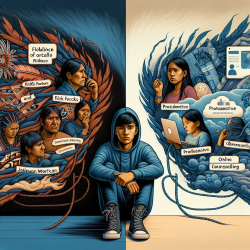Introduction
In the world of online therapy, especially when working with children, data-driven decisions are paramount. The research article "Emergence and Control of Infectious Diseases in China" provides a compelling framework that can be adapted to improve the outcomes of online therapy services. By understanding the methodologies used in infectious disease control, practitioners can enhance their skills and optimize therapeutic interventions for better outcomes.
Key Insights from the Research
The research highlights several strategies that were pivotal in controlling infectious diseases in China. These strategies include the development of a real-time monitoring system, government commitment, and the use of innovative technologies. These principles can be translated into the realm of online therapy in the following ways:
- Real-Time Monitoring: Implementing a robust data collection and analysis system can help therapists track the progress of their clients in real-time. This allows for timely adjustments to therapy plans, ensuring that interventions are effective and tailored to the child's evolving needs.
- Commitment to Continuous Improvement: Just as the Chinese government committed resources to disease control, therapy providers should invest in ongoing training and development for their therapists. This ensures that they are equipped with the latest techniques and knowledge to provide the best care possible.
- Leveraging Technology: Utilizing innovative technologies such as AI-driven assessments and teletherapy platforms can enhance the delivery of therapy services, making them more accessible and efficient.
Encouraging Further Research
While the research provides a solid foundation, it also opens the door for further exploration. Practitioners are encouraged to delve deeper into the data and adapt the findings to their specific contexts. For instance, exploring the impact of socioeconomic factors on therapy outcomes or the role of parental involvement in online therapy can yield valuable insights.
By fostering a culture of inquiry and evidence-based practice, therapists can continuously refine their approaches, leading to better outcomes for children.
Conclusion
The lessons learned from the control of infectious diseases in China offer valuable insights for improving online therapy services. By embracing data-driven decisions, committing to continuous improvement, and leveraging technology, practitioners can enhance their skills and provide more effective interventions. This approach not only benefits the children receiving therapy but also advances the field of speech language pathology as a whole.
To read the original research paper, please follow this link: Emergence and control of infectious diseases in China.










